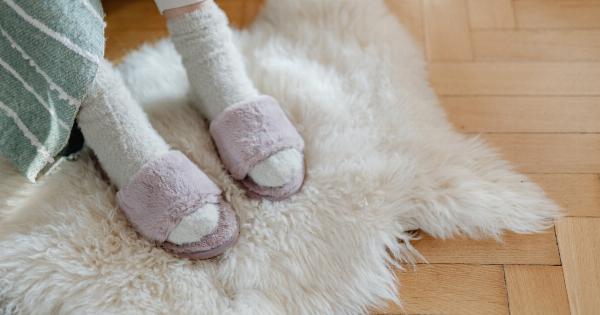Apple cider vinegar (ACV) is a natural remedy with numerous benefits, not just for your internal health but also for your skin.
This versatile ingredient is packed with antioxidants, anti-inflammatory properties, and alpha-hydroxy acids that work together to provide many skin benefits. Here are 30 ways apple cider vinegar can benefit your skin:.
1. Helps Soothe Sunburn
Apple cider vinegar can help soothe sunburned skin due to its anti-inflammatory properties. Dilute a few tablespoons of ACV in a bowl of cool water and apply to a clean cloth. Apply the cloth to the affected areas to ease pain and redness.
2. Reduces Acne and Pimples
The alpha-hydroxy acids in apple cider vinegar gently exfoliate the skin, removing dead skin cells that clog pores and cause acne. Mix equal parts ACV and water, and apply the solution to problem areas with a cotton ball.
3. Balances Skin pH
When your skin’s pH balance is off, it can lead to dryness, acne, and excess oil production. ACV helps to restore the skin’s pH balance, making it perfect for oily or combination skin.
Mix equal parts ACV and water, and apply to your face with a cotton ball.
4. Fights Fungal Infections
The acidic nature of ACV can help to fight certain fungal infections, such as athlete’s foot and ringworm. Apply a solution of equal parts ACV and water to affected areas with a cotton ball.
5. Reduces the Appearance of Scarring
The natural acids in apple cider vinegar can help to reduce the appearance of acne and other scars by exfoliating and lightening the skin. Apply a few drops of ACV to a cotton ball and gently dab on affected areas.
6. Evens Out Skin Tone
Apple cider vinegar can help to even out your skin tone by fading dark spots and reducing redness. Mix equal parts ACV and water, and apply to your face with a cotton ball before bed. Rinse in the morning and moisturize as usual.
7. Helps to Shrink Pores
The astringent properties of ACV can help shrink the appearance of pores. Mix equal parts ACV and water, and apply to your face with a cotton ball. Rinse off after 10 minutes.
8. Soothes Eczema and Psoriasis
Eczema and psoriasis can cause dry, itchy skin that can be difficult to treat. ACV can help to soothe these conditions by reducing inflammation and itching.
Dilute a few tablespoons of ACV in a bowl of cool water, and apply to affected areas with a clean cloth.
9. Helps to Reduce Appearance of Warts
Apple cider vinegar’s acidic properties may help to reduce the appearance of warts. Soak a cotton ball in ACV, place it on the wart for a few minutes, and then remove. Repeat this process several times a day until the wart disappears.
10. Removes Dandruff
Dandruff can be caused by an overgrowth of yeast on the scalp. ACV’s anti-fungal properties can help to reduce this yeast overgrowth, which makes it a great natural remedy for dandruff.
Mix equal parts ACV and water, and apply the solution to your scalp with a cotton ball. Rinse after 10 minutes.
11. Helps to Reduce Appearance of Fine Lines and Wrinkles
The alpha-hydroxy acids in ACV can help to reduce the appearance of fine lines and wrinkles by exfoliating and smoothing the skin. Mix equal parts ACV and water, and apply to your face with a cotton ball. Rinse after 10 minutes.
12. Helps to Whiten Teeth
Apple cider vinegar can help to whiten teeth by removing stains caused by coffee, tea, and wine. Mix 1 teaspoon of ACV with 1/2 cup of water, and swish in your mouth for a few minutes. Rinse with water.
13. Reduces Age Spots
The acids in ACV can help to fade the appearance of age spots. Apply a drop of ACV to a cotton ball and dab on affected areas before bed.
14. Clarifies Hair
Over time, hair can become dull and lifeless from buildup of hair products. ACV can help to clarify hair by removing this buildup. Mix equal parts ACV and water, and apply the solution to your hair after shampooing. Rinse out after a few minutes.
15. Helps to Treat Bug Bites
Apple cider vinegar can help to soothe itchy bug bites by reducing inflammation. Soak a cotton ball in ACV and apply to the affected area.
16. Reduces Under Eye Circles
The astringent properties of ACV can help to reduce the appearance of under eye circles. Mix equal parts ACV and water, and apply to under eye area with a cotton ball. Rinse after 10 minutes.
17. Reduces Redness and Itchiness from Poison Ivy and Poison Oak
ACV’s anti-inflammatory properties can help to reduce redness and itching from poison ivy and poison oak. Dilute a few tablespoons of ACV in a bowl of cool water, and apply to affected areas with a clean cloth.
18. Removes Excess Oil from Hair and Scalp
ACV can help to remove excess oil from hair and scalp by balancing pH levels. Mix equal parts ACV and water, and apply the solution to your hair after shampooing. Rinse out after a few minutes.
19. Helps to Heal Cuts and Bruises
ACV’s anti-inflammatory properties can help to reduce swelling and redness from cuts and bruises. Soak a cotton ball in ACV, and apply to the affected area. Repeat several times a day.
20. Reduces Itchiness from Insect Bites
Apple cider vinegar can help to reduce itching caused by insect bites. Soak a cotton ball in ACV and apply to the affected area.
21. Helps to Prevent Razor Burn
ACV can act as a natural aftershave, helping to prevent razor burn and ingrown hairs. Mix equal parts ACV and water, and apply to your face after shaving.
22. Helps to Treat and Prevent Athlete’s Foot
The anti-fungal properties of ACV can help to prevent and treat athlete’s foot. Dilute a few tablespoons of ACV in a bowl of warm water, and soak feet in the solution for 15 minutes.
23. Helps to Treat and Prevent Dandruff
ACV’s anti-fungal properties can help to prevent and treat dandruff. Apply a solution of equal parts ACV and water to your scalp with a cotton ball. Rinse after 10 minutes.
24. Helps to Treat Cold Sores
ACV’s anti-viral properties can help to treat cold sores. Apply a few drops of ACV to a cotton ball and apply to the affected area several times a day.
25. Helps to Treat and Prevent Acne Scars
ACV’s natural acids can help to reduce the appearance of acne scars by lightening and exfoliating the skin. Apply a few drops of ACV to a cotton ball and gently dab on affected areas.
26. Helps to Treat and Prevent Rosacea
Acne’s anti-inflammatory properties can help to reduce redness and inflammation associated with rosacea. Mix equal parts ACV and water, and apply to affected areas with a cotton ball.
27. Helps to Reduce Appearance of Cellulite
Apple cider vinegar can help to reduce the appearance of cellulite by stimulating blood flow and reducing fat deposits. Mix equal parts ACV and water, and apply to affected areas with a cotton ball. Massage in a circular motion for a few minutes.
28. Helps to Treat and Prevent Yeast Infections
ACV’s acidic properties can help to prevent and treat yeast infections. Add 1 cup of ACV to a warm bath and soak for 20 minutes.
29. Helps to Treat and Prevent Blackheads
The alpha-hydroxy acids in ACV can help to exfoliate the skin, removing dead skin cells and unclogging pores to prevent blackheads. Mix equal parts ACV and water, and apply to problem areas with a cotton ball.
30. Helps to Reduce Appearance of Stretch Marks
ACV’s natural acids can help to reduce the appearance of stretch marks by exfoliating and lightening the skin. Apply a few drops of ACV to a cotton ball and gently dab on affected areas.
Final Thoughts
Apple cider vinegar is an inexpensive and effective remedy for a variety of skin problems. Whether you have acne-prone skin, dry skin, or a fungal condition, ACV might be the solution you have been looking for.
So why not give it a try and see what it can do for your skin?.






























